BEYOND BORDERS
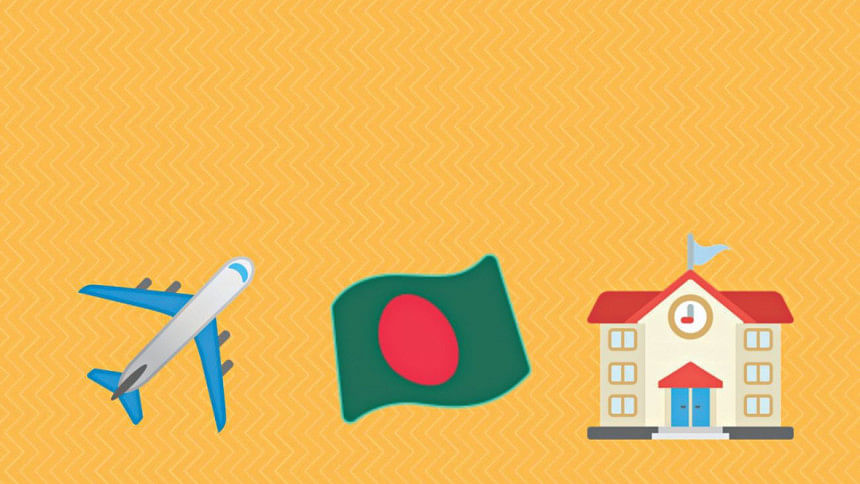
According to a University Grants Commission of Bangladesh (UGC) report published in 2016, there were 355 foreign students studying in the different public universities and 1927 foreign students studying in the various private universities of the country; these numbers are increasing every year.
Students turning towards Bangladesh for their higher education is great news as it will help in the advancement of the tertiary education sector of the country. Foreign students not only add diversity to the campus but they also allow the universities to think outside the boundaries of its nation.
Since the number of overseas students is still low, it's obvious that they will have a little difficulty settling in. So, I asked around a couple of students why they chose Bangladesh as their higher education destination. I also asked them about their experience in this country so far.
Many students I spoke to decided to study here because of the affordable cost of education in this country. Bisoboka Claire Precious, a student of BRAC University (BRACU) from Uganda, says, "I came to this country because I was among the few people who received a scholarship from BRACU. I chose BRACU because their organisation was doing a wonderful job in my country by supporting our people in the education sector and I was curious to know where it all started from."
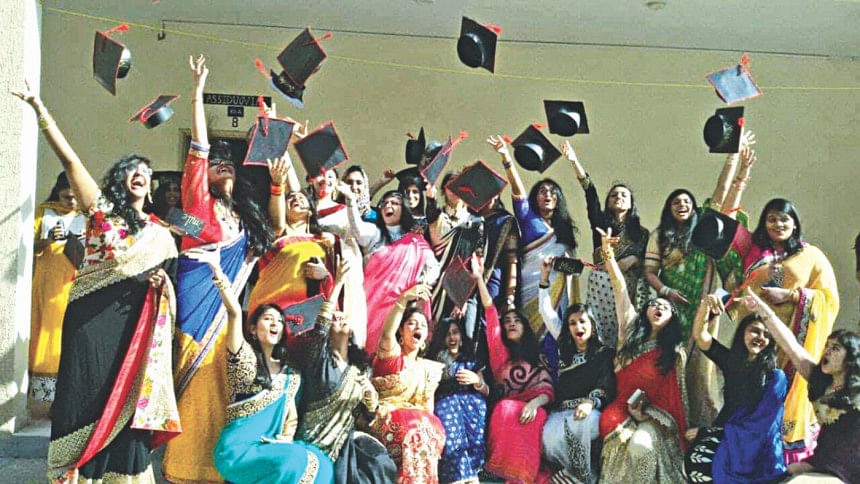
When asked about their experience settling in this country, the answers I received were a bit varied. For most of them, the culture shock was too big and they still did not feel at home. According to Sanjana Lamia of North South University who was raised in the United States, the biggest culture shock to her was the chaotic and polluted road conditions.
"I saw men in uniforms, who were supposed to bring some discipline to the roads, take money from drivers and commuters allowing them to break the already non-existent traffic rules and drive with risks putting everyone else in danger. This shocked me the first time I witnessed it," she mentions.
Moriiom Ahmed, another student from North South University, found the cultural etiquette of the country a problem. She says, "A lot of people I've encountered here don't have the same manners they had back in France."
On the other hand, Nuzhat Chowdhury of Dhaka University who grew up in Saudi Arabia, and Rabiioush Ahmed of North South University from France found it difficult to adjust to the patriarchal society of our country.
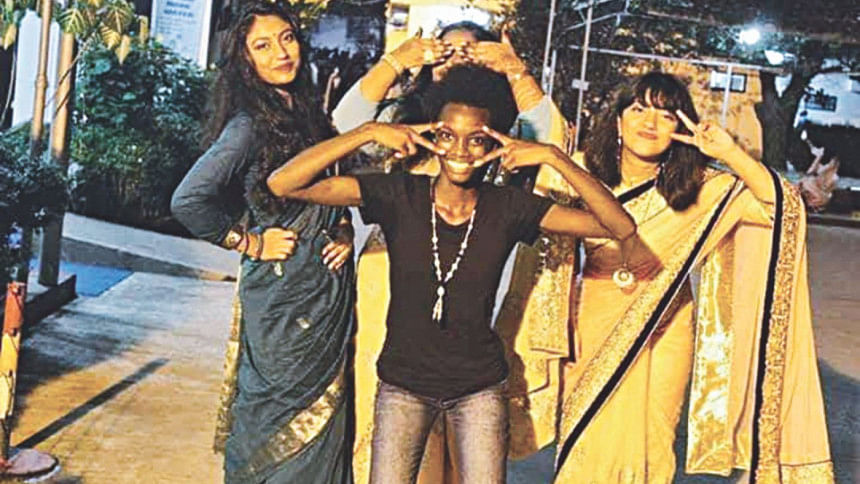
"I guess the biggest shock for me was to find that the patriarchal society is still so dominant here," says Rabiioush. Nuzhat states, "I was surprised by the creepy stares on the streets and the people driving like they've got 9 lives to live."
Language was also a big barrier faced by most when trying to make friends in this new country. "I kind of struggled with making friends because both my Bangla and English were fantastically horrible," says Rabiioush. Bisoboka says, "Most of the people I've met, talk in Bangla mixed with English. If we initiate an English conversation, it's usually really short. I just feel like they are more comfortable talking in their native language which I completely understand. It's awkward because even when everyone's talking in English they might tell a joke in Bangla and then the person next to me would have to explain it to me. Most of the people also have their own groups."
She further states, "Studying is kind of hard too because the teachers explain everything in Bangla most of the time or mix Bangla and English but it's manageable because the contents are always in English. But, I still feel like I'm missing out and the other guys are getting double explanations. I even had a short Bangla course to familiarise myself with some of the everyday words. It doesn't really help though when you're trying to create a conversation."
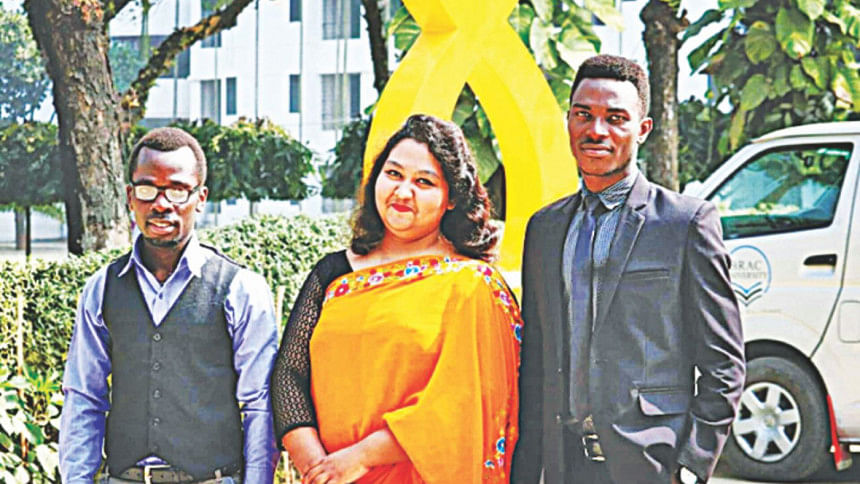
When asked what they think of the educational system of this country, Sanjana remarks, "I feel like the system fails to provide relevant learning materials hence the students are forced to memorise books and are not given the chance to use their creative and analytical skills to solve conceptual problems." Nuzhat also mentions how a lot of the people she encountered in university were inept in giving presentations or writing reports and assignments with no plagiarism. This made them struggle a lot with their academics.
Rabiioush talks about a key problem in our education system, "From what I've learnt so far, Bangladeshi educational system puts a lot of emphasis on memorisation. It seems to be the key to get good grades. But in my opinion, blindly memorising prevents you from thinking in your own way and obstructs proper learning."
According to Salsabil Emdad, a former student of North South University from Dubai, the teachers here definitely do a great job in teaching kids the STEM subjects but there seems to be a lack of variety or interest in the other arts subjects since it's difficult to pursue it at a higher educational level here due to the lack of teachers and also because it's not a viable career option here. According to her, "In any close to perfect education system there should be a balance between these two."
Most of these people have been in Bangladesh already for a few years and others have only recently shifted here. Even for the ones already living here for a few years, the culture disparity between their home country and this one still pose a problem.
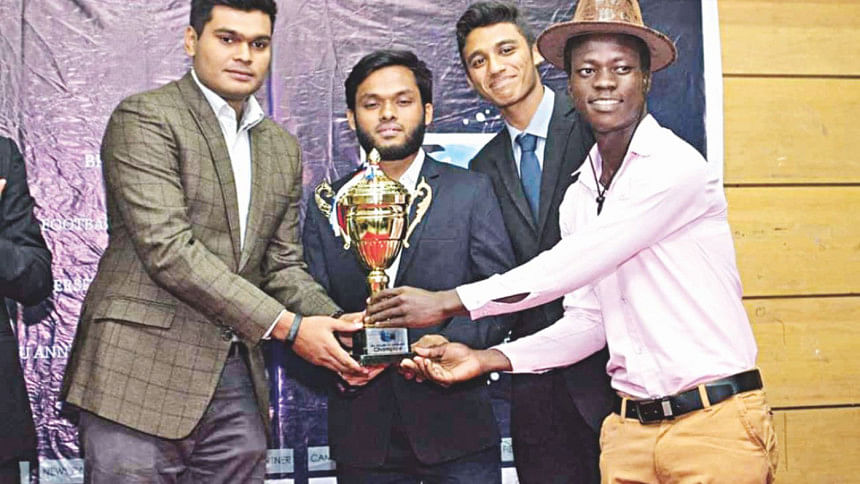
Salsabil recalls, "I found it exceptionally hard to make friends. I constantly tried to mould myself into a person who would be considered likeable just to make friends or even have acquaintances that I could rely on. I think most of my difficulty stemmed from the fact that I just had a different life and experiences which shaped my personality. I had a different perspective on things which a lot of people I met in classes couldn't relate to. Likewise, I often found it hard understanding and relating to the people around me."
This feeling prevailed among most of the others I talked to as well.
"It was difficult for me to make friends here at first because I felt like I couldn't communicate well or find common grounds with most of them. It took me about six months to finally settle in and get used to everything. I still feel like I'm learning something new about this country every single day," says Sanjana.
For a few of them, however, the whole settling in experience wasn't so difficult. Ibrahim Mishail from the Maldives, now studying in University of Liberal Arts Bangladesh, comments, "I like it here and if you know how to find your own way Dhaka is a pretty good place to live in. But unfortunately there aren't other foreign students where I go. In fact, I'm the only foreign student in my university. Because even though a lot of foreign students come here to complete a medical degree, there aren't a lot of students who come here to study business or arts subjects. But I realise that studying here gives me more opportunities to learn different things as I'm exposed to a different kind of culture."
And Nuzhat reflects, "It took me about a year to feel properly settled in. By then, I had already made a good bunch of friends at university who made me feel like I was home. Surprisingly, it took me almost no time to make new friends here."
Tasnim Odrika is having an existential crisis at the moment and doesn't really know who she is anymore. Send her compliments at [email protected]

 For all latest news, follow The Daily Star's Google News channel.
For all latest news, follow The Daily Star's Google News channel. 



Comments